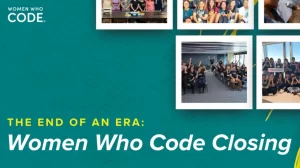
Support groups for women in science, technology, engineering, and mathematics (STEM) are facing significant financial challenges as corporate budget cuts and shifting cultural priorities undermine their efforts. Ada Lovelace Day, a global event celebrating women in STEM, is particularly vulnerable.
Established in 2009 by Suw Charman-Anderson, Ada Lovelace Day honors the legacy of the 19th-century mathematician Ada Lovelace. Charman-Anderson, who felt isolated as one of only three women in her science class and later grew frustrated with the lack of female representation at tech conferences, started the event to spotlight women’s contributions in these fields. Despite its inspirational impact, Charman-Anderson reveals that the initiative is struggling financially. At its peak, the event secured £55,000 in sponsorship for a year, but funding in recent years has dropped to less than half of that amount. “We’ve basically limped on since then,” Charman-Anderson says, noting that the tech community’s verbal support has not translated into substantial financial backing. “Organisations can’t run on inspiration alone,” she adds, highlighting the severe financial strain faced by women in STEM initiatives.
The financial difficulties are not unique to Ada Lovelace Day. Many women-focused STEM organizations are facing similar challenges. Women Who Code, a US-based group with 145,000 members, abruptly shut down in June, citing significant impacts on their funding sources. Girls in Tech, another prominent non-profit in the US, closed after 17 years, with founder Adriana Gascoigne attributing the closure to lack of funding. In the UK, the Tech Talent Charter, which aimed to promote diversity in the tech sector, also ceased operations in June, blaming tech companies for abandoning their equality, diversity, and inclusion (EDI) commitments.
The trend of diminishing EDI efforts within corporations is sparking debate. Budget cuts and layoffs have affected even the largest tech firms, but some view these reductions as a broader cultural shift away from prioritizing diversity. High-profile critics of EDI, such as Elon Musk, have dismissed it as “just another word for racism,” while Apple CEO Tim Cook has defended the importance of diverse perspectives, stating that technology thrives on diverse input.

Despite these differing views, data indicates that the tech industry remains predominantly male. According to the latest diversity figures, women make up 35% of Apple’s global workforce and 32% of its leadership teams. At Google, 34% of the global workforce are women, with 32% in leadership roles. Microsoft shows slightly lower representation, with 29% of executive roles occupied by women. In the UK, although more young women are studying computing science, male applicants still outnumber female applicants significantly.
The importance of female representation in STEM education is underscored by real-world experiences. MC Spano, a US tech executive who mentors women in the sector, shared a poignant example of her daughter choosing to move down from a top maths class due to being the only girl. “Having camaraderie in STEM classes is as important as having the academic achievement,” Spano notes.
In Cornwall, Caitlin Gould’s organization, TecWomenCIC, ran a successful coding club project for schoolgirls, with 95% of participants enjoying the experience and 91% understanding the relevance of tech to their daily lives. Despite this success, Gould struggles to secure ongoing funding, describing her organization’s finances as a “patchwork quilt.” She faces frequent challenges in finding repeat funding for successful projects, with many potential supporters opting to volunteer rather than provide financial support.
For 15 years, Maggie Philbin, former presenter has been involved with TeenTech, an initiative offering STEM activities to school children. She echoes the sentiment that funding remains a constant struggle. “We have some very loyal funders, but it can be very frustrating when you are working on a hand-to-mouth basis,” Philbin says. While TeenTech does not focus specifically on girls, it sometimes surprises classmates with the talents of their female peers.
In conclusion, women in STEM initiatives are grappling with severe financial constraints that threaten their sustainability. While the inspirational value of these programs is recognized, substantial and consistent funding remains elusive, jeopardizing the progress made toward gender diversity in technology and related fields.








